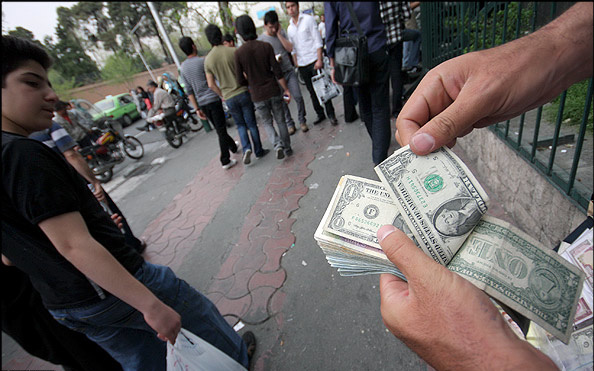Does an attempt at reassurance by the Central Bank point to more economic trouble?
Yesterday, Joanna Paraszczuk updated in our Iran Today coverage:
The head of Iran’s Central Bank has claimed that the Islamic Republic’s currency reserves have increased to between 60-65%, Mehr News reports.
Mahmoud Bahmani said that the currency reserves had seen a “dramatic” increase over recent years and now stand at $40 billion. Bahmani said that the issue of Iran’s foreign exchange reserves was confidential.
Wait just a minute — did the Central Bank, after 18 months of withholding figures, just admit to a 50% decrease — not a 60 to 65% increase in Iran’s foreign reserves?
The Islamic Republic has not posted official numbers on its researves, but at the end of 2011 the best estimates — including that of the CIA — were that Iran had amassed $80 billion.
Leading members of the regime have claimed that, despite sanctions and Iran’s falling oil revenues, that the reserves are in a healthier position now. President Ahmadinejad claimed last Thursday that he had left his successor, Hassan Rouhani, with more than $100 billion.
However, there have been glimpses of the reality, rather than the all-is-well rhetoric. Last autumn, a leading Iranian MP, Alaeddin Boroujerdi, caused a bit of a stir when he said — in a statement that was quickly denied by officials — that reserves had fallen to $40 billion.
$40 billion — the same number used by Bahmani on Tuesday.
Now, however, there is a different context. Last weekend the Central Bank, after months of political wrangling, finally gave way to pressure on the reserves and devalued the official rate of the Iranian Rial by 50%. The move, while driving up the price of imports, nominally doubles — in Iranian currency — the basis of the Government budget, which is based on the dollar-denominated oil price.
Still, Tehran’s oil exports have been cut in half since the beginning of 2012. Production has fallen, despite the claims of Iran that it is increasing non-oil exports, and sanctions are unlikely to be relaxed soon.
So does Bahmani’s attempt at reassurance point to more economic trouble?

